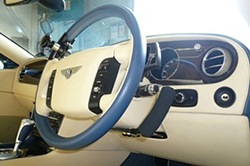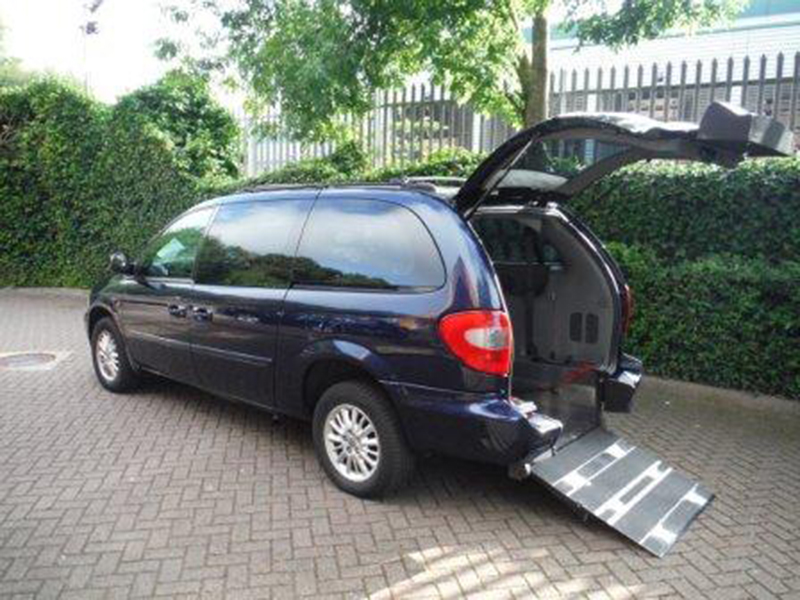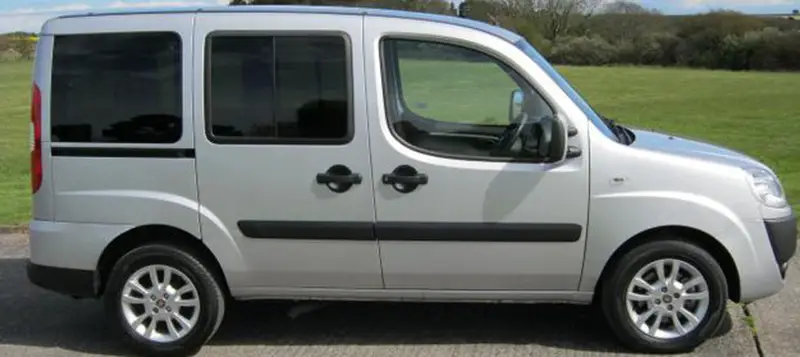
Disability and independence: motoring and Motability
Frances Leckie, editor of Independent Living, looks at Motability, and the current situation for motorists with a disability.
#DHGurus
Driving is an important contribution to independence for many people – if you live in a rural area, public transport may be intermittent or practically non-existent; even in town, accessibility may well not be as complete as you would expect. Relying on taxis can quickly become an expensive habit.
In its glory days, the Motability fleet was about 605,000 vehicles – and even then, according to an informed source, it was meeting the needs of just 5% of the disabled population. From modest beginnings in 1976, when the government introduced the Mobility Allowance, the scheme gradually spread, enabling people who received the higher rate mobility component of Disability Living Allowance (DLA) to use that money to fund a Motability car, whether or not they themselves could drive.
Motability fleet in decline
 Now that we live in the era of austerity, with welfare reform seeing recipients of DLA being reassessed for PIP, the numbers eligible for that highest rate mobility component (known as enhanced rate of PIP) are sharply down. Government estimates were that 428,000 people who received the higher rate mobility component of DLA would no longer get it – which as a consequence would see over 100,000 people losing their adapted Motability car. This is before counting those new claimants who would have been eligible for higher rate DLA, but will not receive enhanced rate PIP under the new rules.
Now that we live in the era of austerity, with welfare reform seeing recipients of DLA being reassessed for PIP, the numbers eligible for that highest rate mobility component (known as enhanced rate of PIP) are sharply down. Government estimates were that 428,000 people who received the higher rate mobility component of DLA would no longer get it – which as a consequence would see over 100,000 people losing their adapted Motability car. This is before counting those new claimants who would have been eligible for higher rate DLA, but will not receive enhanced rate PIP under the new rules.
One way or another, it has been calculated that the Motability fleet size will be down to around 450,000 by the time that everyone has been reassessed and transferred from DLA to PIP in 2018 – and the effects of shrinkage are already being felt.
Some support is available
Newspaper headlines about people losing their Motability vehicle are becoming more frequent. Currently, some 150 a week or nearly 8000 year are affected in this way. What are the practicalities of the situation? There is some transitional support available from Motability, and a seven-week period in which you can continue using the vehicle while you make alternative arrangements. To qualify for the transitional support, you need to return your vehicle before the end of this period, and in good condition.
If you entered the Motability lease agreement before January 2013, and therefore could not have been aware of the risk of losing the highest rate mobility component on being transferred to PIP, Motability will provide transitional support of £2,000, which could be enough to buy a used car.
If your agreement started after January 2013, the transitional support provided by Motability is just £1000, as they calculate that you knew that PIP was being introduced and that you could be reassessed and lose your entitlement.

Buying your current vehicle
For anyone who made an Advance Payment in order to lease the vehicle of their choice, the Motability Scheme will refund it on a pro-rata basis, and there won’t be any extra charges incurred if your lease ends early as the result of a PIP reassessment. Since a Motability vehicle comes with a helpful package including insurance, breakdown cover and servicing, the organisation will also help with information and advice on these aspects of car ownership. They are working with an insurance broker who will offer insurance quotes to former Scheme customers that will recognise their no-claims history whilst on the Motability Scheme, and with dealers and manufacturers to make them aware of the problems faced by people who have lost their Motability vehicle, so that they can discuss possible alternative means to ensure continued mobility.
You may be able to purchase your vehicle following the end of the lease, in which case any payments that you would have received upon returning the vehicle (refund of Advance Payment; transitional support) can be used instead towards the purchase price. If your Motability car is a WAV (wheelchair accessible vehicle), the organisation says that it will work with you to enable you to retain the car, if appropriate. This might involve a grant from the Motability charity, which is separate from Motability Operations, the organisation which runs the scheme. Grants are means-tested, so that funds concentrated on those with the greatest needs and least resources.

The importance of appealing
What can you do if you find yourself facing a future without a Motability vehicle? If you think that the PIP decision is wrong, you should appeal straightaway. You may well have seen the story of Olivia Cork, which was covered recently in the press. Despite having only one leg – which you might think sufficient disability to ensure access to a Motability car – she was judged to be independently mobile enough to manage without. She did ask for the PIP assessment to be reconsidered (unsuccessfully), but crucially, didn’t make a formal appeal – and so, missed out on an opportunity to hold onto her adapted Fiesta. Happily, friends rallied round to raise the money needed to buy the car from the scheme; the media got involved; and a local car dealership generously decided to donate a new car to her, a VW Polo, which will be ready for her to drive away early next month. Such an outcome is extremely unlikely for the majority of people in the same situation – so get that appeal in!
Any other help?
If you are unsuccessful in appealing the decision, and can’t get a grant from Motability, a second-hand car can provide much more affordable motoring. Preowned adapted vehicles are considerably cheaper than new ones – as with any other car. Typically, if you buy from a specialist dealer, the vehicles tend to be single owner and low mileage, with a good service history.
There may be other sources of grant funding to help, depending on your condition, location, employment status, et cetera. The Disability Grants website is a good place to start the search. If you are employed, Access to Work may help with the costs of adapting or running a vehicle if your disability means that you are unable to use available public transport to get to and from work.
The Disabled Motorists Federation has been looking at ways of establishing a parallel scheme, for those who don’t qualify for a Motability vehicle. They have noticed a significant increase in calls from members and non-members alike, asking for advice following the loss of a much-needed vehicle – sadly, there is very little they can suggest at present.
By Frances Leckie
Get in touch by messaging us on Facebook, tweeting us @DHorizons, emailing us at editor@disabilityhorizons.com or leaving your comments below.
Since I wrote this, Motability has provided some interesting up-to-date statistics, which among other things, show that despite the numbers of people losing their vehicles as a result of being transferred from DLA to PIP, their fleet is actually growing – you can read more details here http://www.independentliving.co.uk/motability-update/